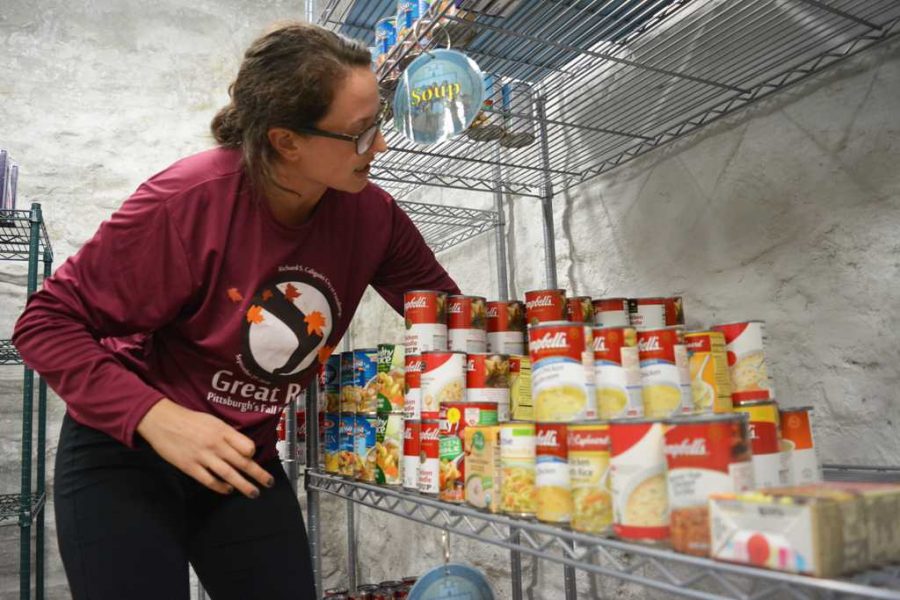When a college student is food insecure, it undermines the education meant to someday put bread on their tables.
The idea that most college students are privileged and wealthy enough to afford food is simply not the reality.
According to the U.S. Department of Agriculture, more than 1.82 million individuals in Pennsylvania — 14.3 percent — experienced food insecurity and were at risk of hunger in 2012. Feeding America found that in 2014, one in 10 hungry adults seeking emergency food assistance were students — 2 million being full-time students.
Universities, therefore, need to address this reality present on their campuses by ensuring that every student has access to affordable, quality food.
Universities need to address food insecurity among their students simply because the government has failed to do so adequately.
The Supplemental Nutrition Assistance Program is one of the largest federal nutrition assistance programs that offers access to healthy food for low-income families. However, the USDA reports that most students who are enrolled in higher education are not eligible for SNAP benefits, unless they work at least 20 hours a week, or take care of a dependent household member under the age of six.
This is despite the fact that an increasing number of low-income students are enrolling in universities. According to the U.S. Department of Education, nearly 75 percent of the 8.6 million students who received the Pell Grant reported having no savings or cash on hand when entering college. The Pell Grant is a federal grant that provides need-based financial assistance to low-income college students.
With no financial cushion to fall back on, low-income students are already at an educational disadvantage — seeing that access to basic necesseties, such as food, is directly related to academic performance.
According to the Food Research and Action Center, food-insecure students had lower GPAs and higher rates of poor health than their food-secure counterparts. They were also twice as likely to work a job on top of their classloads.
These seemingly contradictory results could be because low-income students may have less financial support upon entering college, resulting in a struggle to balance school and work in order to pay for their tuition and basic needs.
It may be hard to think of college students as a population in need of food assistance, but it’s a very real possibility for many undergrads.
Pitt itself has recognized the problems food insecurity causes and currently provides a campus food pantry for students. The Pitt Pantry serves as a food pantry for students who may suffer from financial issues or food insecurity here at the University of Pittsburgh. PittServes is in partnership with the Bellefield Presbyterian Church to help ensure that all students have access to healthy, well-balanced food options.
As long as students fit the income guidelines and provide their student Pitt ID, they are welcome to shop at the pantry twice a month. Healthy food options at the pantry include pasta, fruits and vegetables, soup and even gluten-free items.
This is essential, because studies have revealed that food-insecure and low-income people are especially vulnerable to obesity. Several factors contribute to this relationship, with one example being how healthy food is often more expensive than non-healthy food. In fact, eating healthier food will cost $550 more annually than non-healthy foods, according to the Huffington Post. Therefore, food pantries help to undermine the effects of this correlation — in that, they give lower-income students access to healthier food options that they wouldn’t have otherwise.
Food pantries can make all the difference when it comes to low-income students making ends meet to afford the cost of college — whether that may be decreasing the necessity of loans or giving students more time to study instead of working extra hours to pay for grocery expenses.
Campus food pantries, like Pitt Pantry, help to address food insecurity, but eliminating the problem will require a campus-wide effort. All students need to help encourage the growth of their campus food pantries by donating food and/or volunteering at the pantry itself.
With food insecurity, the social mobility that is supposed to come with a college degree, is no longer guaranteed.
Therefore, we need to stop assuming and start recognizing this reality for many college students.
Write to Kirsten Wong at kew101@pitt.edu.


